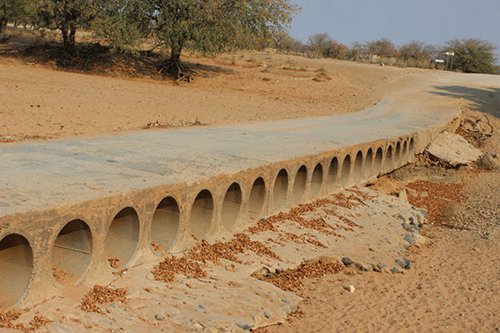Sakeus Iikela
Residents of the Kunene region have told a visiting parliamentary committee that they are no longer interested in participating in public hearings because nothing beneficial to them comes out of such engagements.
The residents are especially dismayed by the lack of continuity with regards to the parliamentary committee system, and its inability to provide feedback on issues raised by various communities at public hearings.
For example, they said they have submitted numerous complaints to various parliamentary committees on the issue of poor road networks in the region for years. But the situation has not improved, despite several promises from the government to address it.
“Every five years, we are visited by a different delegation from Parliament to ask about the challenges we face with roads in the Kunene region, but we don’t see any improvement. We expected you to come here with feedback and solutions to our problems.
“Do you want us to believe that you are only hearing about the difficulties we are facing with regards to roads in Kunene for the first time, or you came here to mock us?” an irate traditional leader asked.
The traditional leader made these remarks during a public engagement between members of the National Council committee on transport, infrastructure and housing, led by Ondangwa Rural constituency councillor Alfeus Kaushiweni Abraham and the community of Opuwo in the Kunene region, held in September.
The committee was in the Kunene on an oversight mission to familiarise itself with the conditions of roads, network connectivity and access to various schools and clinics found in the region’s urban and rural areas.
In addition, the committee wanted to understand the challenges faced by ordinary citizens in terms of accessing various services and economic growth points.
While in Kunene, the committee visited different roads leading to remote villages and constituencies in the region, such as Otuani, Otjiu, Okapembambu and Okanguati.
Challenges
Kunene is the second-largest region in Namibia with a landmass of more than 100 000 square kilometres. But for the most part of the region, there is only one paved road, which stretches from Kamanjab and ending at Opuwo.
The distribution of roads in the region is largely influenced by the vastness and the sparse distribution of the regional inhabitants.
As such, the roads infrastructure network is more pronounced in the eastern and south-eastern parts of the region.
As a result, the seven constituencies in the region with a population estimated to be over 100 000 people are only connected by gravel roads, navigating through a vast mountainous terrain.
And just like the region’s vastness, roads-related challenges facing its inhabitants with regards to accessing services or various economic growth points are colossal.
For example, many of the gravel roads leading to various constituencies which were visited by the committee have been washed away by stormwaters.
Bridges and crossing points meant to help communities to cross various streams during the rainy season, such as the one at Oute, have also been destroyed and never repaired, making it risky to cross during the rainy season.
The committee observed that most of the rural roads in Kunene have been poorly constructed, with culverts at some crossing points placed in the middle of the stream without supporting structures.
As a result, many of the culverts have been destroyed or blocked with sand and debris, making them risky to navigate.
The Kunene Regional Council’s director for planning, Emmanuel Nafele, told the committee that since the bridge at Oute was destroyed by stormwaters in 2017, they have not received money from central government to repair it, “despite several high-level delegations which visited the damaged bridge”.
Some communities, such as Otjiu, do not have roads at all and when it rains, they are always cut off from accessing schools and other basic services, which can only be found in Opuwo.
Nafele told the committee that the regional council has received reports of people who have died because they failed to get to health centres on time due to bad roads.
“Driving on a 100-kilometre road in our region can take up to five hours. This is not a joke. People are dying from things that can be solved if they can get an ambulance to take them to a hospital.
We have been crying and pleading with the government to construct bridges for us, but nothing has materialised. We cannot even distribute drought relief food because of poor roads,” he charged.
For Kunene inhabitants, the need to construct better roads networks in the region is urgent.
At a public engagement held at Otjiu, community members told the committee that they do not want luxurious roads, but simple basic structures to enable them to connect to key points to advance their lives.
The inhabitants of Kunene are, therefore, demanding that roads which have been proclaimed in their region be gravelled with proper crossing points to allow stormwater to run uninterrupted.
They also want roads that have been washed away by water to be repaired.
“Instead of putting up a road, can we maybe think of putting up culverts to connect villages? In other regions, people are talking about constructing community halls, outreach centres and other infrastructure.
“In Kunene, our concern is about opening up the roads so that people can get to the growth points. If the government does not have money to cater for everything, please save lives,” a concerned resident said.
In general, the Kunene region needs better roads because it is already challenging to get around the area due to its mountainous terrain. At all the public engagements, the chairperson of the committee explained to members of various communities that all the issues raised will be consolidated into a report, which will be tabled in the National Council for discussion.
After the report is adopted, relevant ministries and government agencies will be compelled to implement the recommendations and address the situation in the Kunene region.
-Sakeus Iikela is an information and research officer for the National Council



